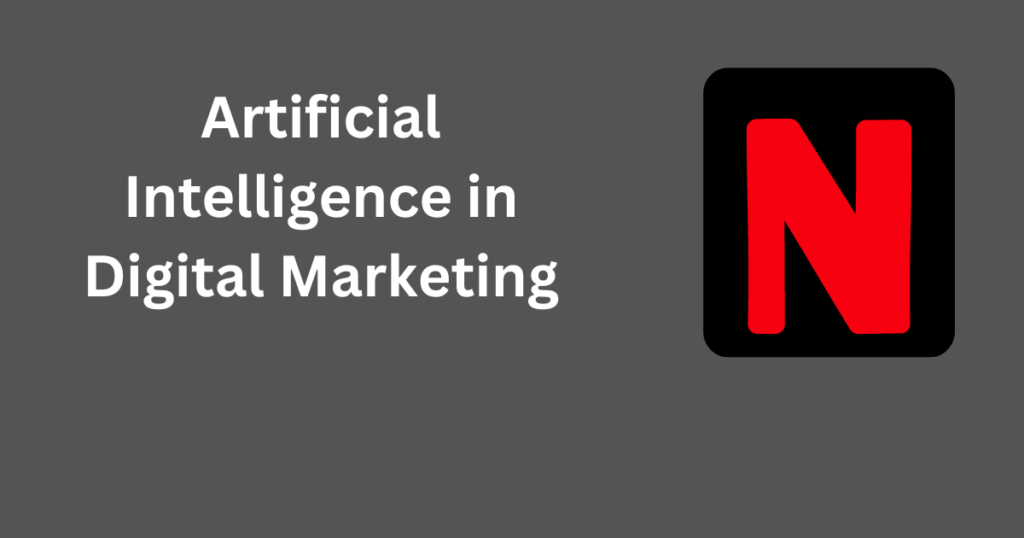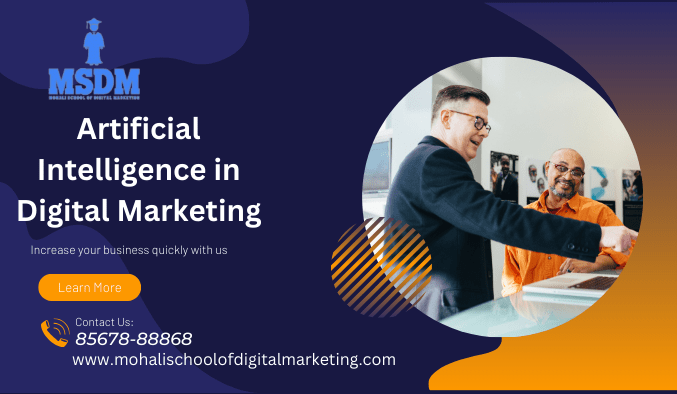AI in digital marketing uses AI to make a plan and gow a company’s marketing. AI technologies enhance many types of marketing strategies and activities to improve marketing performances.
What are Pros and Cons of AI in digital marketing?
Pros of Digital Marketing:
1. Minimal Competition
A low level of competition in artificial intelligence (AI) for digital marketing might have several benefits for companies who are willing to use and develop these technologies.
2. Obtain immediate feedback
This is a significant advantage of digital marketing for businesses since it enables them to quickly make adjustments and enhancements before the issue gets out of hand.
3. Measurable Outcomes
By increasing conversion rates, you can increase the effectiveness of your sales activity by making optimum use of your digital marketing budget. To reach your target audience and make more wise campaign selections, select the appropriate channels.
4. Worldwide Reach
Increased clientele, global reach, cost effectiveness, round-the-clock accessibility, local search engine optimisation, and economies of scaleSuggested Social Media Posts
5. Economy of Cost
There are many different and affordable ways for businesses to interact with their customers through digital marketing.For example, content marketing enables companies to produce worthwhile and pertinent Cons of Digital Marketing
Cons of Digital Marketing
1. Intense Rivalry
High levels of competition in digital marketing can pose a number of difficulties for companies.
2. Adverse comments
This unfavourable review may discourage prospective buyers from attempting or buying the product.
3. Requirements for knowledge and skills
The expertise and skill requirements in digital marketing might come with a number of drawbacks and difficulties.These are a few keys.
1. Ongoing Education and Adjustment
2. High Demand for Skill
3. Intricate and Technological Tools
4.A Balance Of Creativity And Strategy
4.Need Personnel with Training
Businesses face a number of difficulties and drawbacks as a result of the requirement for skilled personnel in digital marketing.These are a few keys.
1. Exorbitant training expenses
2. Obstacles in Talent Acquisition
3. Time-consuming instruction
4. Elevated Rates of Turnover
5. Fraud using digital ads
Digital AD fraud has a number of drawbacks and difficulties, making it a major worry in the field of digital marketing.These are a few keys.
1. Monetary Loss
2.Perturbed Measures of Performance
3. Reputational harm
4. Rising Expenses
6. Privacy and Security Concerns
In digital marketing, security and privacy concerns pose a number of serious drawbacks and difficulties for both customers and businesses.These are a few keys.
1. Breach of Data
2. Compliance with Laws and Regulations
3. Customer Credibility and Image
4. Costs of Operations
Examples of AI in Digital Marketing?
Netflix uses AI to give personalised recomendations.
Netflix describes how it chooses the artwork for suggested TV series and films based on viewers’ past viewing habits.Netflix utilises technology to deliver enhanced suggestions for the next blockbuster films and television series.

How to use AI in Digital Marketing?
Predicting consumer behaviour and sales is a fantastic application of AI in digital marketing. Using past data, such email opens, time-on-page, and consumer interaction measures, AI can forecast the results of marketing initiatives.
1. Content and Image Production
Make content with AI-powered tools like natural language creation, or even come up with ideas for new material. Marketing teams are frequently under pressure to provide content fast for a variety of uses. But producing quality material requires work and patience.
2. Client Assistance
With the use of AI tools, you may create marketing strategies that are more successful by analysing the results of previous campaigns and identifying success trends.
3.Email Marketing
Email MArketing is an important part of any marketing strategy as it continues to be an effective way to convert prospects and engage customers.Use AI to personalise email content and timing to improve performances.
4. Use the appropriate AI marketing resources
The complexity of your digital marketing tools, your budget, and your unique needs will all play a role in the AI marketing tools you choose.
5.AD Optimisation and Targeting
AI-based ad targeting and optimisation can be achieved through a number of strong technologies and platforms. Real-time campaign optimization should be based on user interactions and performance information.
6. Customisation and Enhancing the Client Experience
AI enables marketers to provide their visitors with the greatest experience possible in order to turn them into leads. Digital marketing is all about the customer experience. By providing pertinent content and recommendations, you may increase client happiness and loyalty.
Harnessing the power of AI in Digital Marketing
Using AI to its full potential can transform many parts of personal, professional, and societal activities. Organisations can greatly increase the effectiveness of their AI initiatives by utilising the potential of a data lake.
1.Personalisation: AI is capable of analysing enormous volumes of data to comprehend the behaviour, preferences, and purchase habits of its customers. As a result, customer engagement and conversion rates are increased and marketers are able to produce tailored content, offers, and suggestions.
2. Customer Insights and Analytics: AI systems are able to swiftly process and analyse big datasets, giving them deep insights into the demographics, habits, and patterns of their customers. Making data-driven decisions and strategies is aided by this.
3.Chatbots and Customer Service: AI-driven chatbots can respond to consumer questions instantly, offering fast assistance and improving the customer experience. They are able to respond to several inquiries at once and work around the clock.
4. Content Creation and Curation: By producing articles, social media posts, and other marketing materials, AI can help with content creation. By recommending pertinent subjects and optimising content for search engines, it can also curate content.
5. Predictive Analysis: By examining historical data, AI is able to forecast future patterns and consumer behaviour. This aids in campaign planning and helps marketers target the appropriate audience at the appropriate moment.
6.Advertising: AI can optimise advertising efforts by determining which adverts work best and instantly modifying methods. Platforms for programmatic advertising employ AI to target specific audiences and purchase ad space more effectively.
7.Email Marketing: By segmenting consumers according to their behaviour and preferences, personalising content, and optimising send timings, AI can improve email marketing. Higher open and click-through rates result from this.
8.Voice and Visual Search: AI-powered tools like picture and speech recognition are revolutionising online product searches by consumers. Marketers may adapt their tactics and content to these new search techniques.
9.Sentiment Analysis: Artificial intelligence (AI) may assess public opinion about a business or product by examining customer reviews, social media mentions, and feedback. This aids in understanding client wants and managing reputation.
10.Automation: AI is capable of handling repetitive marketing chores like campaign management, social media posting, and data entry. This boosts productivity and frees up marketers to concentrate on creative and strategic planning.
Conclusion
In conclusion, the use of AI in digital marketing is transforming the field by offering cutting-edge tools and methods that improve effectiveness, customisation, and strategic decision-making. AI-driven solutions help marketers anticipate future trends more accurately, automate repetitive operations, optimise advertising campaigns, and connect and understand their consumers better. Higher returns on investment, better customer experiences, and more effective marketing techniques are the results of this. AI will become an essential part of contemporary marketing tactics as it develops further and has a greater and greater impact on digital marketing. Businesses may maintain their responsiveness and competitiveness in the rapidly evolving digital market by embracing AI.

